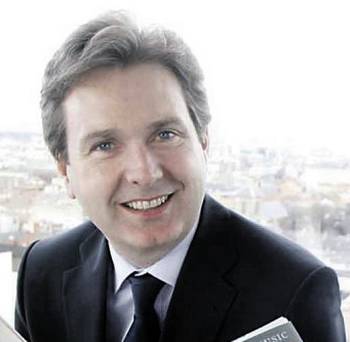LITTLE doubt this week about the main talking point in the FinCrime community.
No, not the European Council vote demanding more resources go into funding Financial Intelligence Units (FIUs) – albeit it is a significant and very welcome shift in the EU political dynamic.
The big discussion in FinCrime circles all week has been around The Economist article declaring: ‘The war against money laundering is being lost.’
Like any good headline it is provocative and designed to draw the reader in.
John Cusack, chair of the Global Coalition to Fight Financial Crime, commented on LinkedIn that: “Perhaps rather than using terms such as wars being lost and efforts being largely ineffective, we need to decide which battles to fight and what winning or effectiveness actually looks like.”
His observations drew many plaudits, including from Jean Chung, Policy Advisor to Korea’s FIU. “I firmly believe that Public and Private Partnership can steer the FI to the right direction where we can contribute to fight the actual financial crime.”
Speaking to a influential banker this week he teased: ‘Who is Europe’s AML Regulator?’ The answer he offered – ‘the United States.’
Of course John is right and the terminology of “war” and “war on AML” are not helpful – in the same way the “war on terror” and “war on drugs” are oversimplistic and never likely to end in what could ever be termed victory, not to mention complete victory.
What is clear however is that The Economist article has made some very valid points, including:
- Governments have outsourced to the private sector much of the policing they should be doing themselves
- It is as easy now as 20 years ago to rinse dirty money through shell companies
- The confiscation rate for dirty money in Europe is a paltry 1.1pc
- The three big problems are – lack of transparency (beneficial ownership), lack of collaboration (patchy transnational co-operation and GDPR fears) and lack of resources (yes governments are still largely designing and funding police forces to cope with physical and offline crime while effectively ignoring the international organised criminals siphoning off tens of millions in cyber space)
One can’t help thinking the author was briefed by a major bank CEO, particularly as the article bemoans compliance as a major cost ($180BN pa): “This has turned AML compliance into a huge part of what banks do and created large new bureaucracies. It is not unusual for firms such as HSBC or JPMorgan Chase to have 3,000-5,000 specialists focused on fighting financial crime, and more than 20,000 overall in risk and compliance,” the author observes.
Well, what’s the alternative? Put the cost back on the State?
Well actually, maybe.
What is true is that the fight against financial crime is not fit for purpose – particularly here in Europe. Speaking to an influential European banker this week he teased: “Who is Europe’s AML Regulator?” The answer he offered – “the United States.”
There is certainly a degree of truth to that as Europe still lacks a centralised approach to AML. Moreover, the big fines for non-compliance are only coming out of the US.
Europe has to do a lot more. All eyes are on Financial Services Commissioner Mairead McGuinness’ rollout out of the AML Action Plan over the next few weeks. That will put a single supervisor in charge of a single rule book throughout the EU. But that is only the start of the solution.
The real key to successful financial crime compliance was identified, in of all places, the European Council this week.
That solution is adequately financing FIUs.
It is not as simple as it sounds. Governments and politicians require a fundamental shift in thinking that realises crime has moved online. That means re-calibrating and in some cases fundamentally revamping police forces, law enforcement agencies and Central Banks. The structures put in place when cheque book fraud was rife are no longer fit for purpose. It will mean putting more funding and technological capability in Cyber Units, Online Fraud Units and White Collar Crime Bureaux. In other words governments must follow the money – online fraud and money laundering is where the vast bulk of criminal assets now flow.
Governments will always complain about the cost of reforming law enforcement and the difficulty in finding and hiring cyber detectives.
The Council of Europe again identifies a solution – “successful confiscation of illegal assets represents a huge opportunity for States to generate resources needed to address the social problems caused by organised crime, corruption and terrorism.”
“Urgent action to step up the tracking and confiscation of the proceeds of crime is therefore both necessary and potentially highly rewarding,” the Council notes.
In other words, the EU needs to completely re-think how it approaches financial crime. It needs to introduce more agile processes, make asset seizure simpler and quicker and re-invest the confiscated tens of millions back into compliance and social funds. Europe must start thinking like the private sector in finding a solution to a problem that will not go away unless it introduces head-to-toe reform.
The EU has traditionally been queasy about Public Private Partnerships in the area of law enforcement
That will undoubtedly involve increasing the level of co-operation between FIUs and the private sector. Multi-disciplinary teams of bank FCC executives, police, Central Bankers and private industry will have much better success in tackling and tracing criminal assets. After all, the gangs work together to hide their dirty money – why can’t the financial institutions and law enforcement do the same?
The EU has traditionally been queasy about Public Private Partnerships in the area of law enforcement. That must change – and PPPs embraced, if only in the early days to change the model of fighting financial crime.
The Economist can of course be wrong. It likes to call itself a newspaper. We all know it’s a magazine.
It also has a track record on provocative headlines. I remember the consternation in media circles 15 years ago when the magazine predicted the death of newspapers. Well they are still around – albeit in terminal decline in print – but pivoting with varying degrees of success online.
The Economist article on money laundering however is largely right, if its language around “war” is wrong.
- Hear from John Cusack; Stephen Rae; European Commission Vice President for the EU’s Security Union, Margaritis Schinas; US Assistant Attorney General for National Security John Demers; and some of Europe’s top banking and FinCrime experts at #IFPC2021 FinCrime & Cybersecurity on Wednesday, April 21. Register your place on our Events Page.
Share this on:
Follow us on:









